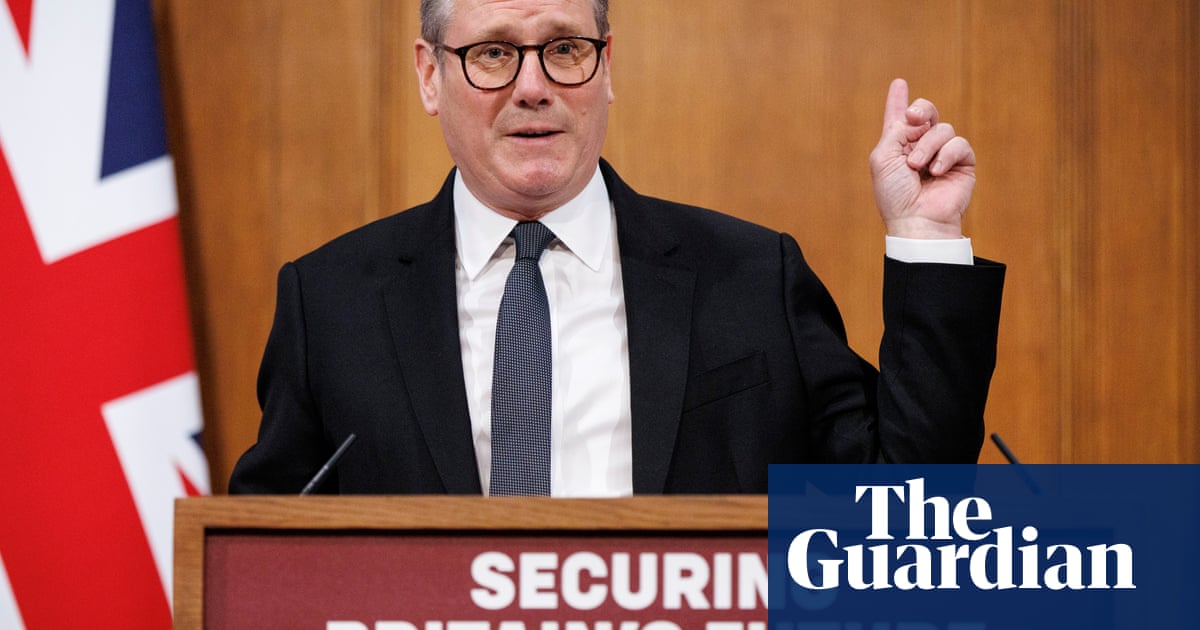More than a dozen bishops and other senior Christian, Muslim and Jewish faith leaders have written to the prime minister after his “island of strangers” speech, urging him to use a more “compassionate narrative” about migrants.
The letter was sent toKeir Starmerafter his speech on Monday, which preceded the publication of the government’s immigration white paper that has been widely criticised by migrant rights organisations and civil society groups.
The letter has been signed by more than 25 senior faith leaders from three of the UK’s main faiths, including 14 senior Anglican bishops. The bishops of Winchester, Southwark, London, Leicester and Leeds, Imam Qari Asim, Rabbi Jonathan Wittenberg, and representatives of the Baptist Union of Great Britain, the Methodist church, the Scottish Episcopal church and the United Reformed church have signed.
As well as speaking about “an island of strangers” – which some critics claimed echoed Enoch Powell’s 1968 “rivers of blood” speech about a future multicultural Britain where white people “found themselves made strangers in their own country” – the prime minister talked of “taking back control of our borders” and ending a “squalid chapter” of rising immigration.
The interfaith letter, shared exclusively with the Guardian, has been coordinated by the UK Jewish refugee charity HIAS+JCORE, which works for a more compassionate refugee policy and narrative.
It states: “Our concern is that the current narrative, which presents only one side of the debate, will only drive public anxiety and entrench polarisation. When you refer to the ‘incalculable’ damage done by uncontrolled migration, you are in danger of harming migrant members of our communities and strengthening those who would divide us.”
The faith leaders ask that concern about immigration be addressed in a principled way that lowers the temperature of the debate. It calls for a change of direction that prioritises bringing communities together.
“People have come to the UK under the rules set by successive governments, paying whatever fees and surcharges, to work, contribute and pay taxes. Framing this as somehow unfair only feeds the politics of grievance and division,” it states.
The faith leaders urge Starmer instead to focus on building community relationships.
“It is through sharing experiences that we come to recognise our common humanity. We urge the government to think more holistically and positively about fostering good integration. We are appealing to you to also affirm those things that would bring us together, across our diversity,” it says.
“Only by doing so can we actually fix the systemic problems faced by those within our current asylum system and humanitarian protection schemes.
“Promoting fair policies that balance the needs of host communities with real opportunities for people restarting their lives after fleeing war, conflict, and persecution is a necessary start.”
The signatories say they are speaking up for migrants whose voices are rarely heard. “These include many from within our own faith communities who have built new homes and lives in the UK, becoming part of our national story and fabric. Our country would be so much poorer without them.”
The prime minister’s office has been approached for comment.
